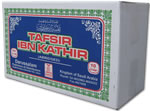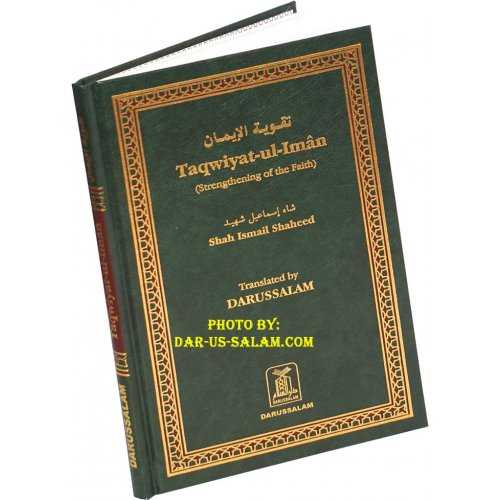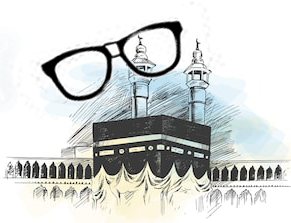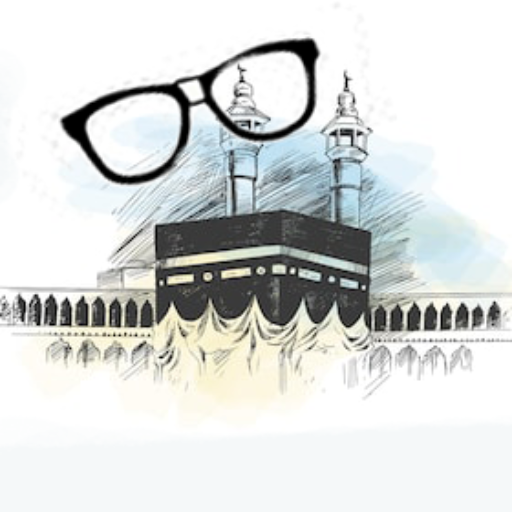Hajj and Tawheed
Hajj and Tawheed – Hajj is one of the 5 pillars of Islam and an act of worship that must be devoted only to Allah. It is a declaration and a manifestation of the belief in the Oneness (tawheed) of Allah. It is a time to call upon Allah to purify the self from any worship to other than Him.
The Muslim who declares the talbiyah: (Labbaika allaahumma labbaik. labbaika laa shareeka laka labbaik; innal-hamda wan-ni’mata laka wal mulk, laa shareeka lak) understands that it is a du’aa that means: “Here I am O Allah, here I am. Here I am, You have no partner, here I am. Surely all praise is due to You, and every bounty is from You, and all dominion is Yours, and You have no partner.”
The Muslim, therefore, should submit himself completely (mentally, spiritually, and physically) to Allah Alone. No worship should be devoted to statues, tombs, religious leaders, righteous men (dead or alive) or any part of the creation!
The tawheed of Allah requires the Muslim to follow the perfect way of worship. This is the way (sunnah) of Muhammad sallallaahu alaihi wa sallam as understood by the sahaabah (the companions of the Prophet sallallaahu alaihi wa sallam), who were the best of mankind.
With ‘Eid Al Adh’ha being the next holiday for the Muslim ummah and arriving within the next few months. We thought it important to share the importance Hajj has in regards to Tawheed and Islam in general. Our Shaykh, Dr. Saleh’ As Saleh’ (rahimahullah) shared important information about Hajj in this lecture below. Please study it and share as much as possible. Remember to donate to Nerd of Islam, as we need your generosity to continue to provide free and authentic Islamic knowledge online.
Hajj and Tawheed
The Most Comprehensive and Authentic Explaination of the Quran!  Purchase the complete Tafsir Ibn Kathir (10 Vol Abridged) By Dar-us-Salam Publications. |
1. This is a journey that was taken by Prophets and Messengers before you. Those who take the path of the Prophets magnify the tawheed of Allah and His House. There are those, however, who come to perform hajj and their hearts are attached to other than Allaah. They invoke the dead and the righteous, whether present or absent. This is the opposite of tawheed, it is shirk no matter what they call it because it is setting up rivals besides Allaah. So, free your intention from any kind of devotion to other than Allaah. Repent and come with a sincere heart submitting to Allaah remembering what Ibraheem and his son Ismaa’eel said when they were raising the foundations of Allah’s House, the ka’bah:
“Our Lord! And make us submissive unto You and of our offspring a nation submissive unto You, and show us our Manasik (all the ceremonies of pilgrimage – Hajj and ‘Umrah, etc.), and accept our repentance. Truly, You are the One Who accepts repentance, the Most Merciful.”
(Baqarah 2:128)
2. You are set to depart and you may or may not return to your home. Make this journey to Allaah’s House as Allaah wants it. Think of the next journey that is surely coming, the one that leads to the meeting of Allaah, Most High. This raises questions like: What did I prepare for that Day? Am I following Allaah’s Commands? Am I a follower of the sunnah of Muhammad salAllahu ‘alayhi wasallam? Do I really know of Allaah? Am I a believer that Allaah is above the seven heavens over his ‘arsh as He has stated in His Book and as His Messengers have asserted? Am I a believer that believes Allah has a true Face that suits His Majesty as He has affirmed in the Qur’aan and as has been affirmed by His Prophet Muhammad salAllaahu ‘alayhi wasallam? Am I a believer in all of Allaah’s Names, Attributes and Actions which He has affirmed in His Book and by His Messengers? Or do I just take and accept by my doubt, rejecting, or distorting the meanings of Allaah’s Attributes and Actions?
And invoke not any other ilah (god) along with Allah, La ilaha illa Huwa (none has the right to be worshipped but He). Everything will perish save His Face. His is the Decision, and to Him you (all) shall be returned.
(Al-Qasas 28:88)

Hajj and Tawheed
3. Know, may Allaah’s Mercy be upon you, that when you reach the meeqaat there is another meeqaat that is still to come. It is the meeqaat (appointed meeting) on the Day of Ressurection:
Say (O Muhammad salAllaahu ‘alayhi wasalaam): “(Yes) verily, those of old, and those of later times. All will surely be gathered together for appointed Meeting of a known Day. (Al-Waqi’ah 56:49-50)
4. When you start the talbiyah remember the Command of Allaah ‘azza wa jall to the Prophet Ibraaheem ‘alayhi salaam:
And proclaim to mankind the Hajj (pilgrimage). They will come to you on foot and on every lean camel, they will come from every deep and distant (wide) mountain highway (to perform Hajj). (Al-Hajj 22:27)
The talbiyah you make is in response to the Prophet Ibraaheem’s proclamation to visit Allaah’s house of worship. Allaah is Most Great.
5. Upon entering Makkah remember that you are in the Secure Sanctuary:
Have We not established for them a secure sanctuary (Makkah), to which are brought fruits of all kinds, a provision from Ourselves, but most of them know not.
(Al-Qasas 28:57)
Let one commit himself to repentance, having a good opinion of Allaah, hoping that Allaah will grant him security from His Punishment.
6. You will enter one of the gates of al-Masjid al-Haraam. Then there you are before the magnificent House of Allaah, Most High, the ka’bah. Now you see what you hoped to see for a long time. Thank Allaah subhanahu wa ta’ala for making this possible and hope that He ‘azza wa jall will grant you the greatest reward of seeing His Majestic Face on the Day of Resurrection. This thankfulness is not just in saying “alhamdu-lillaah,” but also by obeying Allaah while on hajj and for the rest of your life.
7. You start your tawaaf knowing that it is a great time for magnifying Allaah the Exalted. Remember Him ‘azza wa jall by His Names, Attributes and Actions. Also while in tawaaf try to reflect upon the time when Prophet Muhammad salAllaahu ‘alayhi wasallam was prevented from doing the same thing you are doing today. Then think about what he did in clearing out the site from the symbols signifying worship to other than Allaah! All idols were demolished. Busy yourself with du’aa. Ask Allaah, the Most Great, to make you hold to the correct belief and Path of the salaf and make you die on it. Ask Allaah to save you from all forms of shirk and bid’ah.

Hajj and Tawheed
8. While in sa’yi, contemplate on Haajar, the mother of Ismaa’eel, when she asked her husband Ibraaheem ‘alayhi salaam: “Did Allah order you to do this (leaving her and her baby Ismaa’eel in Makkah)? He said: “Yes.” Her great response was: “Then He (Allaah) will not neglect us!” Think about this great dependence upon Allaah when you are in the sa’yi walking the same path which Haajar took in search for water and for means of life around the mounts of Safa and Marwah.Think about her endurance, perseverance and trust in Allaah. The sa’yi exemplifies the strong belief that we are in need of One Who Sustains and Provides – Allaah, the Exalted.
Think about Ibraaheem’s invocation on his way homeward to Palestine:
O our Lord! I have made some of my offspring to dwell in an uncultivable valley by Your Sacred House (the Ka’bah at Makkah); in order, O our Lord, that they may perform As-Salat (Iqamat-as-Salat), so fill some hearts among men with love towards them, and (O Allah) provide them with fruits so that they may give thanks. (Ibrahim 14:37)
Men and fruits came to Makkah from many places. Ibraaheem ‘alayhi salaam returned to visit and later to share with his son Ismaa’eel the noble task of raising the foundations of the ka’bah.
9. The standing on ‘Arafaat is the hajj. The crowds should remind you of the Day of Resurrection. Humble yourself to Allaah, manifest your ‘uboodiyyah to Him Alone through du’aa, sincere intention and strong determination to free yourself from the sins of the past and to build up a commitment to rush for doing what is good. Think of becoming a better person when you return. Rid yourself of false pride and showing off because it may ruin what you gain on this day.
10. You gathered the pebbles and you are about to embark on stoning the jamaraat. This is an act of obedience and remembrance of Allaah, Most Magnificent. The Prophet salAllaahu ‘alayhi wasallam said: “When you cast the small pebbles (i.e. at the jamaraat), it will be a light for you on the Day of Resurrection.” (1)
11. When performing the sacrifice remember the saying oh Allaah, the Most High:
It is neither their meat nor their blood that reaches Allah, but it is piety from you that reaches Him. (Al-Hajj 22:37)

12. When you have completed your hajj, do not think that the remembrance of Allaah has ended. Listen to what Allah ‘azza wa jall says:
So when you have accomplished your Manasik [i.e. the rites of hajj] remember Allah as you remember your forefathers or with a far more remembrance.
(Al-Baqarah 2:200)
Special note: If you go to Madeenah then the objective of your visit should be according to the sunnah and not bid’ah. Your intention is to set on a journey to visit the Prophet’s mosque and not his grave. When you reach the mosque and you pray upon entering then you may go to the grave and say, “Assalamu ‘alayka ayyuhan-nabiyy.” (2) The same salaam is also mentioned when you pass by Abu Bakr and ‘Umar without innovations like:
a. Visiting the grave of the Prophet salAllahu ‘alayhi wasallam before praying in the mosque.
b. Making du’aa facing the grave.
c. Seeking nearness to Allaah by means of the Prophet salAllaahu ‘alayhi wasallam. This is a prohibited form of tawassul.
d. Seeking intercession from the Prophet salAllaahu ‘alayhi wasallam.
e. Placing the hands upon the grills around the room containing the Prophet’s grave to seek blessings, etc. (3)
Remember the Prophet’s salAllaahu ‘alayhi wasallam sayings:
“Do not make my grave an ‘eed (place of celebration)…” (4)
“May Allaah’s curse be on the Jews and Christians for taking the graves of their Prophets as places of worship.” (5)
“Those before you took the graves of their Prophets as places of worship. Do not take graves as places of worship for verily I forbid you to do so.” (6)
13. The journey is not meant to gain any material reward. It is a selfless sacrifice solely for Allaah, Most Majestic. It demands true love and fear of Him. It should be performed with full consciousness of one’s heart, with full humility and submission to Allaah. It should not be thought of as a tourist-type excursion or be performed as mere physical rites. It develops sincerity, piety, humility, self-control, sacrifice, and true knowledge of the meaning of submission and obedience to Allaah, Most High. It helps the pilgrim to be a better person who is devoted to Allaah in every aspect of his life.
Hajj and Tawheed
Audio Lecture
Download Dr. Saleh’s (rahimahullah) Book For Free: DOWNLOAD PDF
Footnotes:
(1) Reported by Al-Bazzaar in his Zawaa’id (p. 113) on the authority of Ibn ‘Abbas. Al-Haafith Ibn Hajar reported that its isnaad is hasan. This hadeeth is reported by Shaykh Al-Albaani in his Silsilat al-Ahaadeeth as-Saheehah, V.6, hedeeth #2515
(2) The position of the scholars regarding visiting the gravesites by women can be summarized as follows:
(a) Disliked but not unlawful, (b) Allowable, if done infrequently. If a woman is known as being unable to behave herself within the limits of sharee’ah at a gravesite, then she should be prevented from visiting the graves, (c) Forbidden, and (d) A grave sin
Many scholars state that women visiting the Prophet’s mosque may pronounce the salaam upon the Prophet salAllaahu ‘alayhi wasallam wherever the person may be. The Prophet salAllahu ‘alayhi wasallam is in a state of barzakh (a state of existence that begins with death and lasts until the Day of Resurrection), the nature of which is only known to Allaah, Most High. [See ash-Sharhul Mumti’, V.5, pp. 475-478]
3. Refer to Shaykh Al-Albaani’s book Manaasik al-Hajj wal ‘Umrah for more details.
4. Collected by Abu Daawood, [sunan Abee Daawwood (English Translation), V.2, pp. 542-543,
hadeeth #2037], and Ahmad (2:367). Shaykh Al-Albaani stated its isnaad (chain of narrators) is hasan (correct). [See Tahtheer as-Saajid min Ittikhaathil Quboor Masaajid by Shaykh Muhammad Naasirud-Deen Al-Albaani (4th edition), [Beirut: al-maktab al-islaami, 1403/1983], p.97]
5. Collected by Al-Bukhari [Saheeh al-Bukhari (Arabic/English), V.2, p.232,
hadeeth#414],and Muslim [Saheeh Muslim (English trans.), V.1, p.268,
hadeeth #1074], Abu Daawood, At-Tirmithee, An-Nassaa’i, and Ibn Majah.
6. Saheeh Muslim, (English trans.), V.1, p. 269, hadeeth #1063

Don’t forget to comment & share. Also please click our ads, they pay the bills. jazakallahu khayr.


